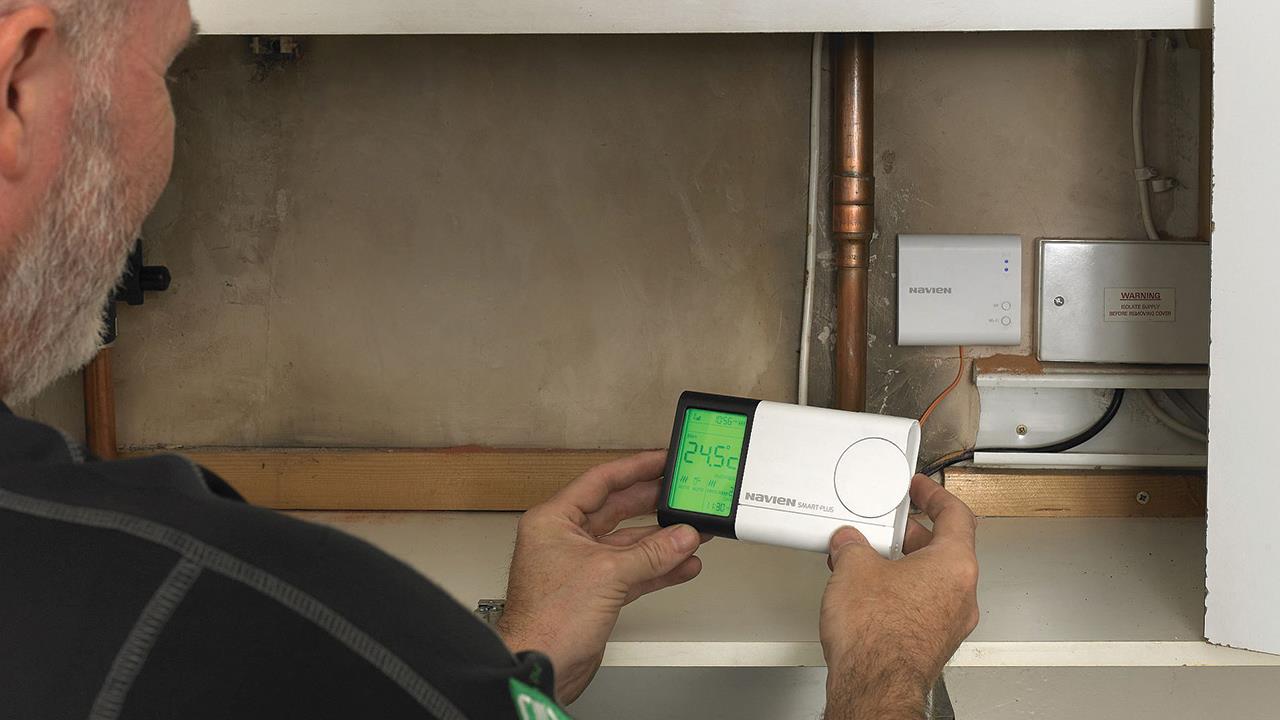

With UK gas prices set to rise significantly, homeowners across the country will be looking for every means possible to help reduce their usage – and bills.
Interestingly, research conducted by BEAMA towards the end of 2021 revealed the significant role that heating controls can play in reducing energy bills and improving home efficiency, identifying such devices as having the capacity to reduce gas use by 10-12%.
As stipulated in BEAMA’s energy saving guide for householders, a gas or oil boiler used for heating and hot water will consume far more energy than anything else in a property – “on average, 80% of the total”.
Taking this into account, installers should be recommending their customers take full advantage of the latest modern controls, as they are able to prevent needless energy use and wastage by preventing unnecessary heating cycles.
Indeed, while it remains imperative to ensure boilers remain as energy efficient as possible, this is a thankless endeavour if the controls used are not of equally high quality.
Installers should also bear in mind that homeowners have become much shrewder when it comes to the latest technologies, so are likely to have done their homework and researched which options offer the best features and benefits, particularly in terms of reducing bills and energy use.
As is the case with most heating technologies, modern devices will be more efficient and accurate than older ones. In fact, the more advanced boilers will actually have some controls built-in; the latest units will include a textual display, aiding installers with tasks such as commissioning and servicing. All the essential information is now available at the push of a button.
Similarly, end-users can quickly consult without having to hunt for the instruction booklet, allowing any issues to be addressed quickly and easily.
There are advantages to using a boiler manufacturer’s own control units; after all, not only does this offer the advantage of having all system components produced and managed by the same company, it ensures all components are able to communicate clearly with each other. There should be no technical ‘gremlins’ or set-up issues, as both the boiler and controls will be using the same digital protocols to ensure accurate and reliable levels of performance.
Of course, being Wi-Fi enabled offers even greater advantages in terms of data accessibility and control via smartphones and other devices. The main benefit is that end-users can have remote access to their boiler and heating system controls from anywhere in the world. No matter where they are, individuals are able to receive any error messages, and can therefore adjust their heating and hot water if required. Should someone be away from home, or on holiday, they also have the option to pre-book an engineer for after they have returned.
Alternatively, friends or relatives with access to the ‘smart app’ will be able to relay any relevant technical information to the manufacturer’s customer service department on their behalf. This capacity to share a login with other household or family members is not always available with third-party devices.
Another feature maximising smartphone compatibility is geofencing, which sees the heating system switch on (or off) depending on whether an end-user is within a defined distance of their home. This is something that can be operated from multiple smartphones, enabling entire households to enjoy optimal levels of indoor comfort at their desired temperature.
Finally, another key controls consideration is central heating zoning. This provides even greater flexibility by making precise temperature management possible in different areas of a property, while potentially also improving the overall energy rating of a system. For example, the heating can be set lower in the kitchen than in a lounge, or even be programmed to come on at different times across separate floors of a building.
Furthermore, zoning ensures the temperature in each room can be easily and accurately set for optimum comfort; depending on the main occupant’s own liking.
So, with the many features and benefits of the modern heating controls in mind, it makes sense for installers to urge their customers to embrace the latest state-of-the-art devices.
Indeed, AMA Research states “the market for smart heating controls is expected to achieve annual growth of 7-9% in value terms between 2022 and 2025,” so there are certainly financial, as well as ecological gains to be made.
In an everchanging energy market, at least the latest controls offer long term reassurance, thanks to their consistently high levels of efficiency and reliability.
If you'd like to keep up-to-date with the latest developments in the heating and plumbing industry, why not subscribe to our weekly newsletters? Just click the button below and you can ensure all the latest industry news and new product information lands in your inbox every week.